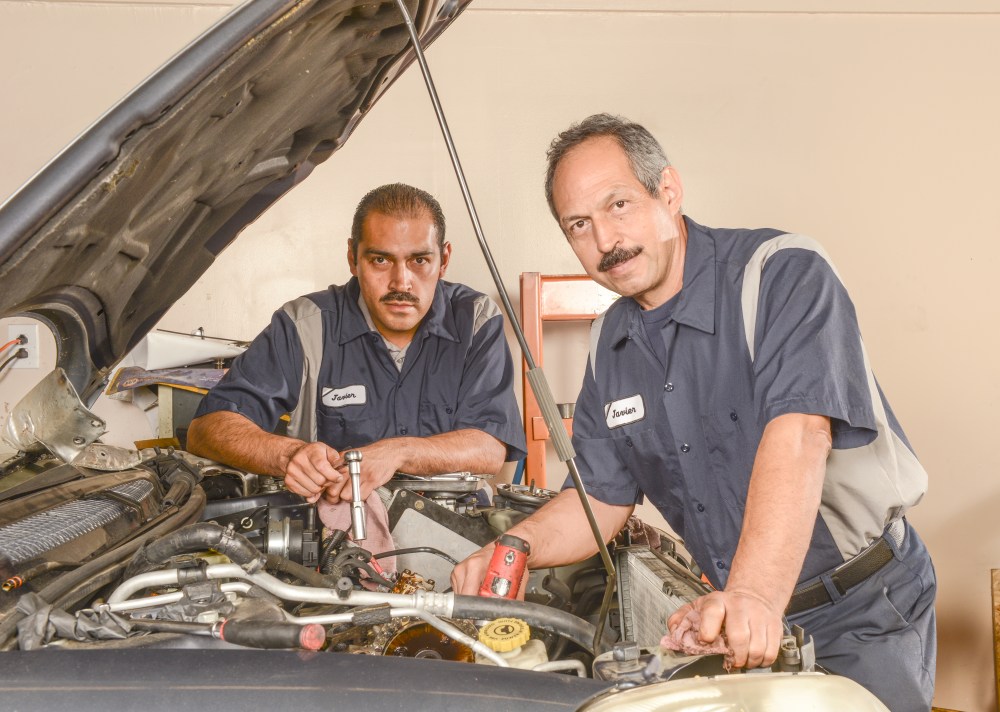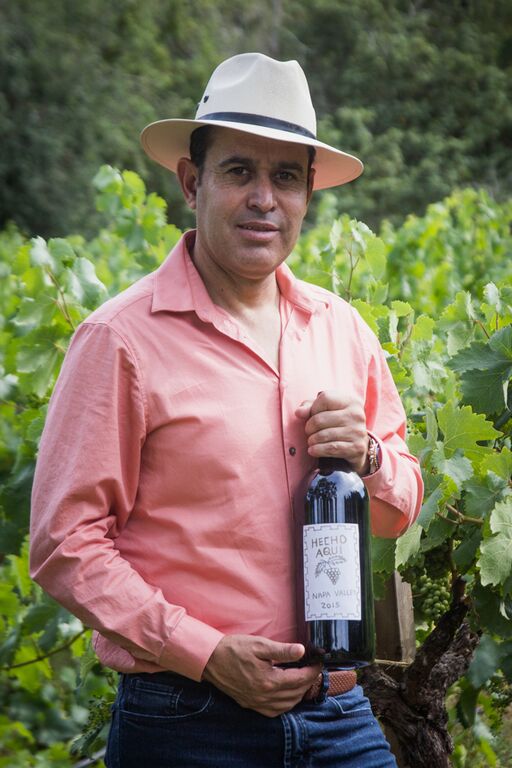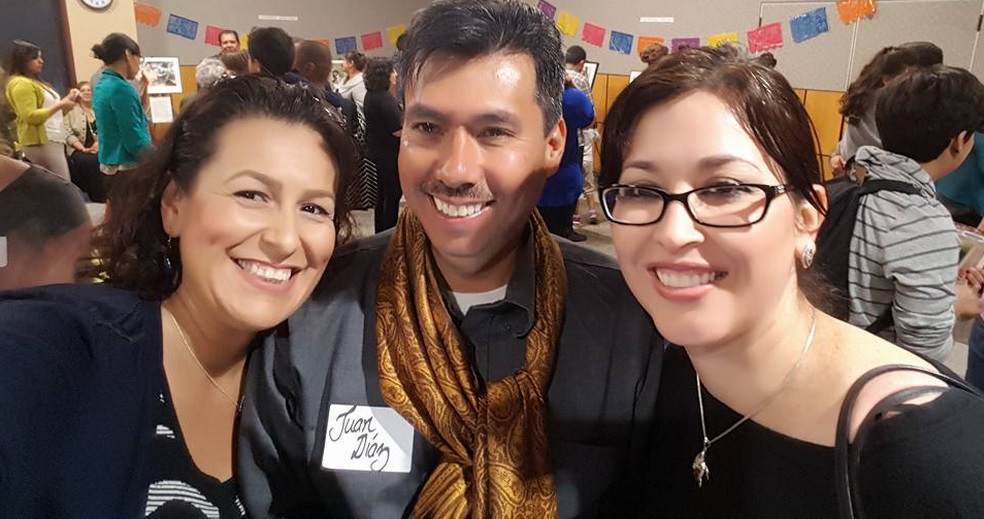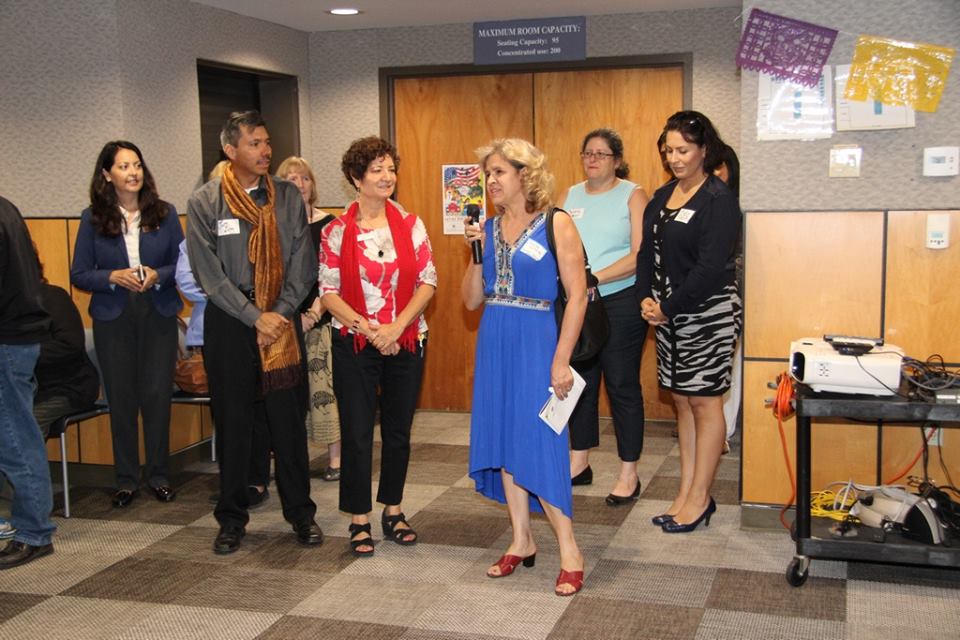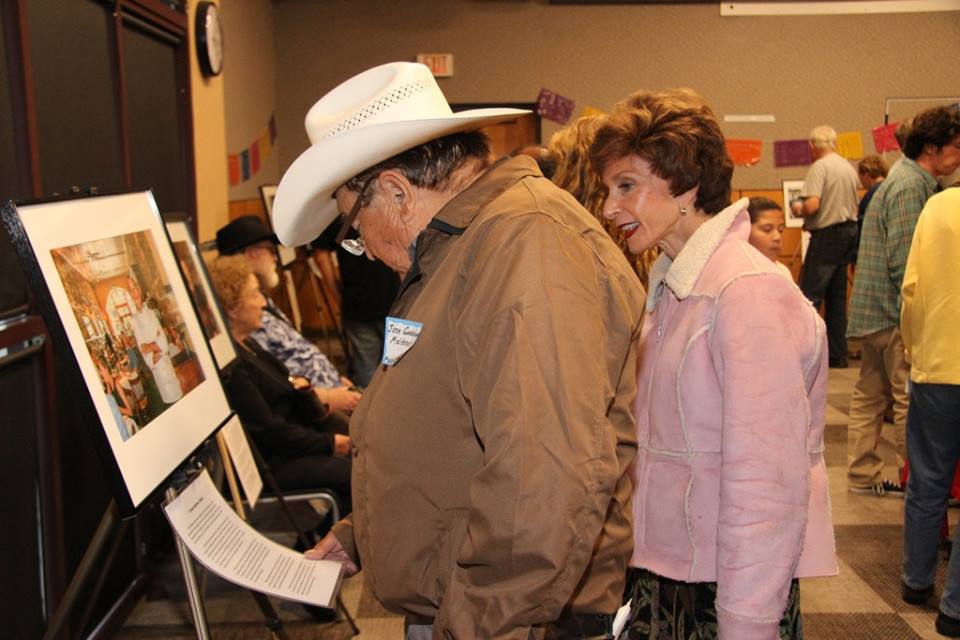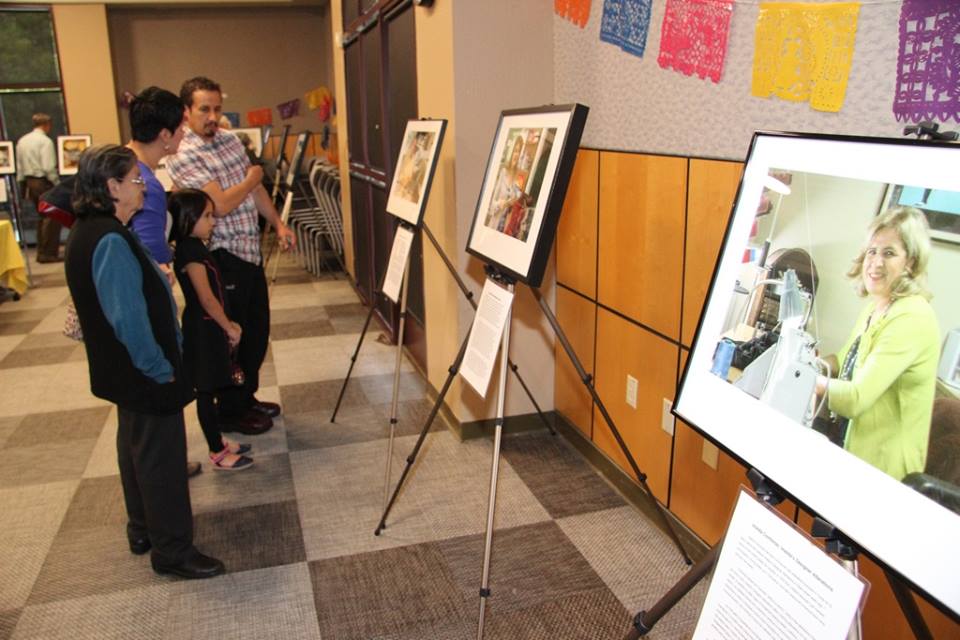
Photo by Adriana Arriaga
Pedro DeLuna and his oldest son Jesus DeLuna came to the United States from Colonia Modelo, Fresnillo, Zacatecas in Mexico as a part of the Bracero program in the 1940’s. They brought their families here in 1960’s, after which Pedro DeLuna, opened La Luna Market and Taquería in 1968, the first Mexican market in the Napa Valley. He ran it with the help of his sons and daughters and their families: catering events always included the children, grandchildren, and even great grandchildren. “The market has gone through different transformations, there was always someone in the family in charge,” shares the founder’s granddaughter, Ines DeLuna. Currently the store is managed by Ines’ sister Gloria DeLuna-Ortiz and owned by her uncle Abel. Pedro DeLuna died in 1993. The business offers the following services today: sending money to Mexico, a taqueria, catering, groceries, wine and beer sales. In the past, it was so much more than a store–it was a virtual community center.
“Don Pedro always told us that nobody should ever leave hungry or in need. He reminded us daily that in order to receive, you must first give. At the market, the family was sure to always keep all the tools needed for working the fields: knives, pruners, gloves, hats, and anything else, as well as food. Don Pedro always provided credit to any of the families or men coming in, we had small books we would write down what each person put on their account.”
“My favorite ‘job’ at the store,” continues Ines, “was sitting with my grandfather on a milk carton, listening to the many stories and chats my grandfather had with the workers and families coming in. I remember all the hard-working men who would come in daily to eat, drink, and send money to Mexico. Many a time, those workers would come in months or years later with their families and say, look this is where I would send you money and write you letters, these are the people who helped me while I was here alone. Families came to us for all kinds of assistance, filling out immigration forms, visa requests for the children and families, buying airline and bus tickets, helping with traffic tickets and court documents,” DeLuna elaborates.
Decades later, the market and its taquería continue to thrive and have been featured in national articles and TV shows such as Travel & Leisure, The Food Channel, The Travel Channel, and Martha Stewart Living. Meanwhile, “even though we (in the DeLuna DeHaro family) have all moved through the store and pursued our own dreams, we always come back to what is home. La Luna Market is home for many people in this valley whose home has not always been here.”
Biography by Maija Starr.
~~~
Pedro DeLuna y su hijo mayor Jesus DeLuna vinieron a los Estados Unidos desde Colonia Modelo, Fresnillo, Zacatecas en México como parte del programa Bracero en los 1940’s. Trajeron aquí a sus familias en los 1960’s, después de lo cual Pedro DeLuna, abrió La Luna Market and Taquería en 1968, el primer mercado mexicano en el Valle de Napa. Lo llevó con la ayuda de sus hijos e hijas y sus familias: los eventos de catering siempre incluían a los hijos, nietos, e incluso bisnietos. “El mercado ha pasado por diferentes transformaciones, siempre estuvo alguien de la familia a cargo,” dice la bisnieta del fundador, Ines DeLuna. Actualmente la tienda está gestionada por la hermana de Ines, Gloria DeLuna-Ortiz y el dueño es su tío Abel. Pedro DeLuna murió en 1993. El negocio ofrece hoy en día los siguientes servicios: enviar dinero a México, una taquería, catering, comestibles, venta de vino y cerveza. En el pasado, fue mucho más que una tienda – fue un centro comunitario virtual.
“Don Pedro siempre nos decía que nadie debería irse hambriento o necesitando ayuda. Nos recordaba diariamente que para recibir, primero hay que dar. En el mercado, la familia siempre se aseguraba de guardar todas las herramientas que se necesitaban para trabajar en el campo: cuchillos, podadoras, guantes, gorros, y cualquier otra cosa, así como comida. Don Pedro siempre daba crédito a cualquiera de las familias u hombres que venían, teníamos libros pequeños en los que anotábamos lo que cada persona ponía en su cuenta.”
“Mi ‘trabajo’ favorito en la tienda,” continúa Ines, “era sentarme con mi abuelo en un cartón de leche, escuchar las muchas historias y conversaciones que mi abuelo tenía con los trabajadores y las familias que venían. Recuerdo a todos los hombres que trabajaban duro que venían a comer diariamente, beber, y enviar dinero a México. Tiempo después, esos trabajadores venían meses o años después con sus familias y decían, miren, este es el sitio de donde les enviaba dinero y les escribía cartas, esta es la gente que me ayudó mientras estaba aquí solo. Las familias venían a nosotros en busca de todo tipo de ayuda, rellenar formularios de inmigración, solicitudes de visado para los niños y las familias, comprar billetes de avión y de bus, ayudarles con las multas de tráfico y documentos judiciales,” detalla DeLuna.
Décadas más tarde, el mercado y su taquería continúa prosperando y ha aparecido en artículos nacionales y programas de televisión como Travel & Leisure, The Food Channel, The Travel Channel, y Martha Stewart Living. Mientras tanto, “aunque nosotros (en la familia DeLuna DeHaro) nos hemos trasladado de la tienda y perseguido nuestros propios sueños, siempre volvemos a lo que es nuestra casa. La Luna Market es el hogar para mucha gente de este valle cuya casa no siempre ha estado aquí.”












